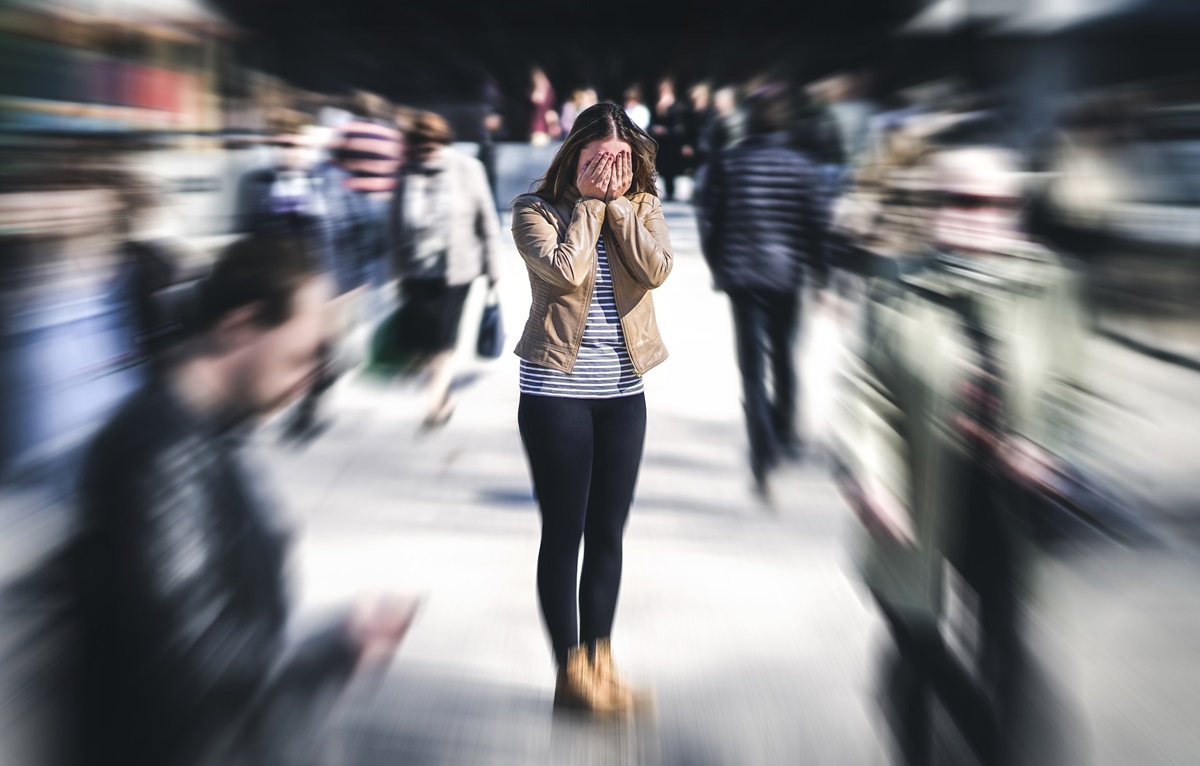What do you think of this article?
By Dr. David Woo - March 18, 2024

Living in New York City can be exhilarating, but it can also be incredibly stressful. The hustle and bustle of city life, along with the pressures of work, relationships, and daily challenges, can take a toll on anyone’s mental well-being.
It’s no wonder, then, that many New Yorkers struggle with conditions like depression, anxiety, or obsessive-compulsive disorder (OCD). These mental health conditions, known as mood disorders, are usually treated with pharmaceutical medications. However, these are not effective for many patients—for example, studies show that around 40% of people on antidepressant drugs do not experience satisfactory relief from their symptoms (1).
Struggling with mental health challenges even after going through a medication regime can be an incredibly frustrating situation, on top of all the everyday stressors of New York City life. Fortunately, there are alternatives based on cutting-edge scientific research. Transcranial Magnetic Stimulation (TMS), a drug-free therapy with a high success rate in treating depression, anxiety, and OCD, is available in New York City.
Navigating Mental Health Challenges In NYC
The fast-paced lifestyle of New York City can exacerbate mental health challenges, leading to feelings of isolation, burnout, and stress. The Big Apple has long been a point of interest for research into mental health trends in dense urban populations, with studies showing the impact on a population’s mental health by social issues such as racism and gentrification, as well as singular events such as the 9/11 terrorist attack and Hurricane Sandy (2,3,4,5).
Understanding TMS Therapy In NYC
TMS therapy is an FDA-approved treatment option for individuals with treatment-resistant depression and OCD. Many patients are also using TMS therapy for anxiety with positive results.
TMS is a non-invasive procedure in which a helmet-like device (placed over a patient’s head) delivers magnetic pulses to brain areas related to the patient’s symptoms. TMS stimulates the neurons inside the brain, allowing them to form new connections that stabilize the patient’s brain chemistry and alleviate symptoms of depression, anxiety, and OCD.
Benefits of TMS Treatment in NYC
In a city as vibrant and diverse as New York, there are many alternative therapies to choose from, but it is important to opt for one that is backed up by medical science. TMS has a proven success rate of around 75%, with 3 in 4 patients finding relief from their symptoms and around half achieving remission.
TMS therapy offers several advantages for individuals seeking mental health support in NYC. Unlike medications, TMS therapy is non-systemic, meaning it targets specific areas of the brain without causing widespread side effects. Additionally, TMS is typically well-tolerated—TMS reviews from 2023 report little to no side effects, with the latter usually limited to a mild, temporary headache or scalp irritation.
Why Choose TMS Therapy In New York?
TMS clinics in NYC are scattered throughout the city, giving new New Yorkers more opportunities to find this innovative therapy than other Americans—for example, Madison Avenue TMS & Psychiatry is located in the heart of Manhattan, being conveniently accessible for New Yorkers living or working around the city center.
TMS costs in NYC may be more affordable than you think. In many cases, TMS is covered by insurance, and when it isn’t, we can often work with your insurer for an out-of-network agreement.
Get TMS in NYC With Madison Avenue TMS & Psychiatry
Madison Avenue TMS & Psychiatry is a premier destination for TMS therapy in NYC. With an experienced psychiatric team, Madison Avenue TMS & Psychiatry offers comprehensive care tailored to each person’s unique needs. From the moment you enter our doors, you’ll receive personalized attention and compassionate support on your journey to improved mental health.
Don’t let mental health challenges hold you back from living your best life in the city that never sleeps. With its non-invasive nature, effectiveness, and accessibility, TMS therapy is transforming the landscape of mental health care in NYC.
If you’re ready to take control of your mental health and reclaim your life, take the next step toward improved mental well-being and contact Madison Avenue TMS & Psychiatry for compassionate care and innovative TMS therapy services.
Resources:
- Al-Harbi, K. S. Treatment-resistant depression: Therapeutic trends, challenges, and future directions. Patient Preference and Adherence. 2012;6, 369-388. Link. Accessed February 20, 2024.
- Lim, S., Chan, P. Y., Walters, S., Culp, G., Huynh, M., & Gould, L. H. Impact of residential displacement on healthcare access and mental health among original residents of gentrifying neighborhoods in New York City. PLOS ONE. 2017;12(12), e0190139. Link. Accessed February 23, 2024.
- Kwate, N. O., A. and Goodman, M. S. Cross-Sectional and Longitudinal Effects of Racism on Mental Health Among Residents of Black Neighborhoods in New York City. American Journal of Public Health. 2015;105, 711_718. Link. Accessed February 23, 2024.
- Gruebner, O., Lowe, S.R., Sampson, L. et al. The geography of post-disaster mental health: spatial patterning of psychological vulnerability and resilience factors in New York City after Hurricane Sandy. Int J Health Geogr. 2015;14, 16. Link. Accessed February 23, 2024.
- Adams, R. E., Boscarino. J. A., & Galea, S. Alcohol Use, Mental Health Status and Psychological Well-being 2 Years After the World Trade Center Attacks in New York City, The American Journal of Drug and Alcohol Abuse. 2006;32:2, 203-224. Link. Accessed February 23, 2024.
Dr. David Woo is the owner and head clinical psychiatrist at Madison Avenue TMS and Therapy in New York City. Dr. Woo has been seeing patients in private practice since 2002, always with the goals of combining evidence-based medicine with psychodynamic psychotherapy and collaborating with other mental health professionals to ensure the best possible outcomes for his patients. He has been certified to administer TMS at his practice since 2017. His greatest clinical interests include helping patients suffering from depression, anxiety, and obsessive compulsive disorder.
Follow Dr. Woo On









